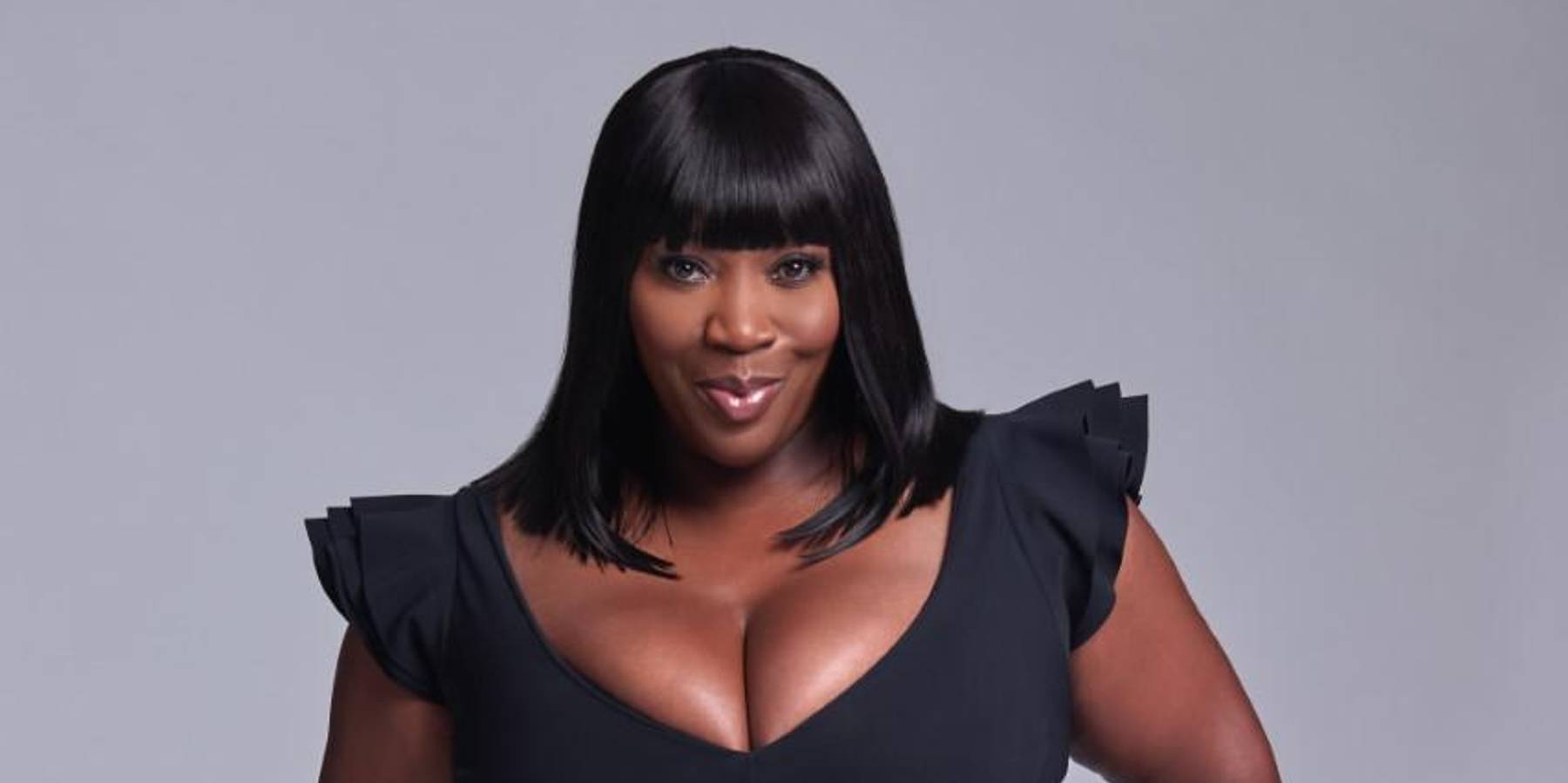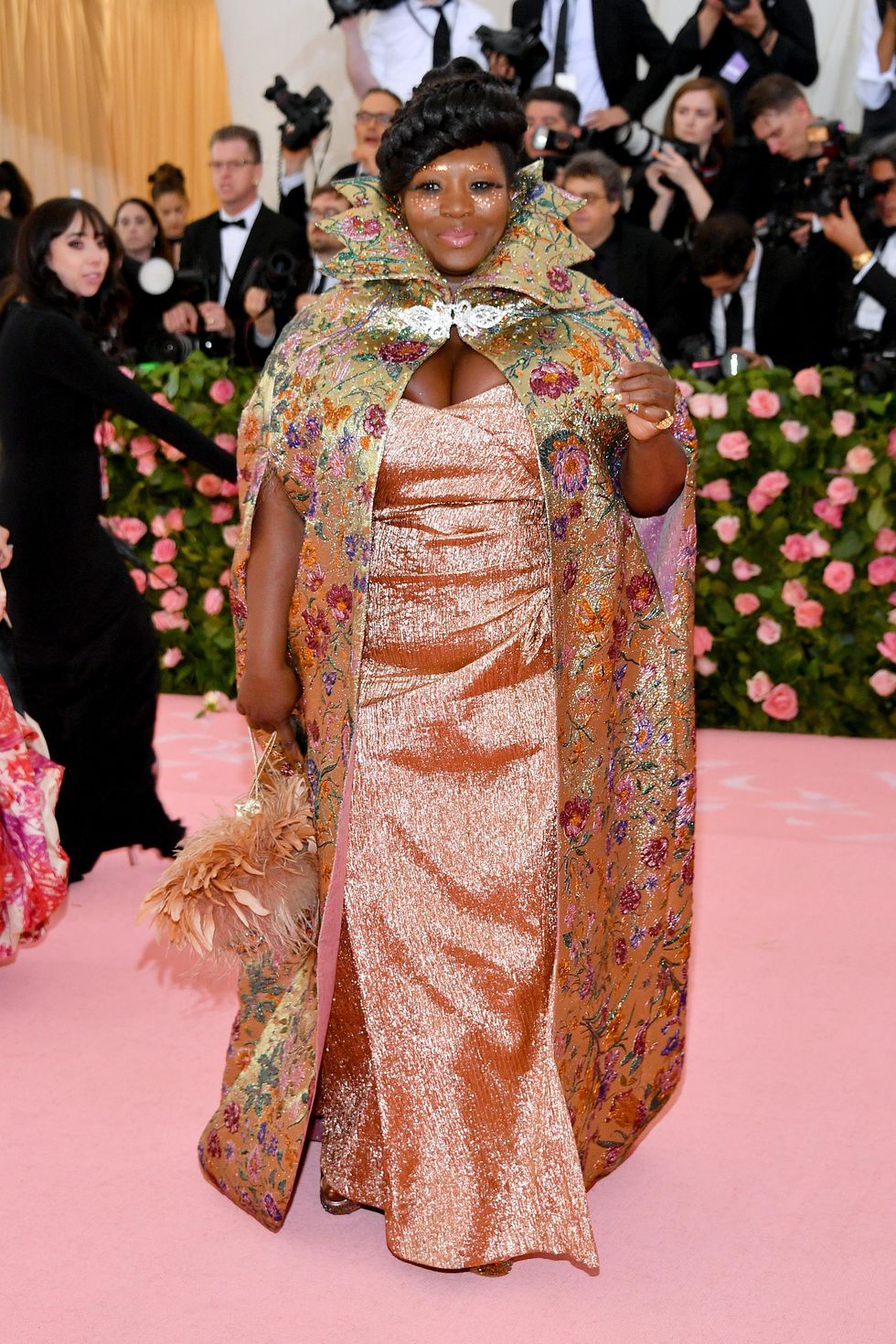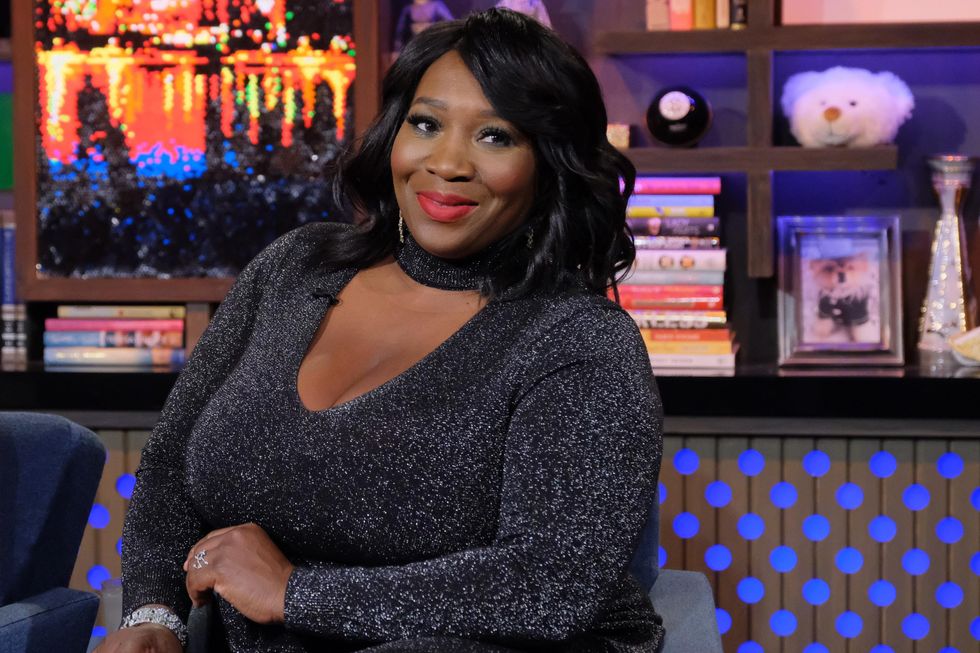
To the casual Bravo watcher and pop culture fan, Bevy Smith is the hilarious and outspoken TV personality who bridges the gap between fashion and entertainment like no other. But as anyone who's seen her critique celebrity style on the Wendy Williams Show or as the co-host of Fashion Queens (RIP) can attest, Smith's commentary is informed, incisive and no-bullshit — a rarity among the pleasers and yes-people of Hollywood.
Indeed, it's easy to forget that Smith holds some of the most successful fashion credentials of anyone who works in entertainment. Though her auntie persona and infectious presence has made her a household name, behind that facade is someone who spent years climbing the ladder in fashion and beauty publishing, and becoming a top advertising director, where she developed close relationships with some of the biggest fashion houses and designers in the world.
She'd get showered with free gifts from all the major brands (fresh off the runway), go to all the international fashion shows and attend the most lavish VIP parties. By any measure, such lifestyle would be synonymous with officially having "made it," particularly for a curvy Black woman like Smith who grew up in Harlem. But underneath that glossy exterior was someone who felt empty, unfulfilled and in the throes of a personal crisis.
That much and more is documented in her new book: "Bevelations: Lessons from a Mutha, Auntie, Bestie." In the memoir, which was released in January, Smith chronicles the lessons, pitfalls, heartbreak and triumphs she endured over the course of her life and career as an accomplished businesswoman who worked in a field that often dismissed people who look like her.
PAPER caught up with Smith to get her thoughts on the state of the industry now, how she fell out of love with fashion and the biggest piece of advice for reinventing yourself.

Bevy Smith at the "Notes on Camp" Met Gala in 2019
What was the experience like for you going down memory lane and sharing the highs and lows of your career for this book?
It was great for me because I love all of those memories and I love to see my growth. I'm proud of myself for becoming a better person. I'm proud of myself for allowing myself to be seen in a very vulnerable way and standing in my truth in that way. I love that I'm telling the story of little brown Bevy and that so many people are going to find a kinship with her, especially girls that grow up in the hood that oftentimes put on a brave face even though they're shy or quiet. That's been one of the best parts about it. Hearing from other Black women who say that in order to protect myself in my community or just in the world overall, I've had to put on this strong Black woman persona. But no no no, we can dial that back and we can also tap into our little girl selves and be vulnerable and open.
It was interesting to see you write about what the publishing landscape was like back in those days. What are your thoughts on the industry now? Being that it's so different, do you have any thoughts one way or another, good or bad, about the state of the media today?
I'm so happy to see the gates opening up for Black and brown people finally in publishing in these traditionally white spaces. My only issue is that I wish there was still the money connected to it the way it was when it was an all-white industry. I wish that you guys had the opportunity to become an editor-in-chief of a magazine and have a car and driver at your disposal, and fly first class, and have a clothing allowance, and all those things that used to happen in my era. I wish you guys had that. But the business has changed so much. Now you guys are forced to be not only writers and editors but also internet personalities, social media influencers on behalf of the magazine that you're working with. You have to make sure that whatever it is that you're writing is getting enough clicks. It's a lot more pressure. Once upon a time, you wrote an article and that's what you did. That was it. So, I don't like the extra added job that has been put on you guys. But I'm glad to see that people of color, specifically Black and brown people are getting these opportunities.
Whew, I felt that! It's stressful enough worry about your social presence alone without the pressure of leveraging it for career gain.
These media entities are trying to act like this is for your greater good, but it's really for their greater good because if you build up your personal brand and use it on their platform, they get the eyeballs.

Bevy Smith as a guest on Andy Cohen's "Watch What Happens Live!"
In this chapter of your life, your hustle has given you more opportunities than ever before. What are some of the things you enjoy most about where you are now?
Well, I love the fact that I wake up and I get to decide how I want my day to go. I am steering this ship. I'm able to say yes and no to what I'm going to do and that's an awesome feeling. That's a really great feeling of independence and freedom. I love that travel is a big part of my life now. I don't travel for work now, I travel for pleasure and I take about six amazing trips a year. Once upon a time, I would go to Milan or Paris and I would piggyback trips. It's much better now. I've always wanted to be a world traveler and that's something that I've been able to do in the last fifteen years since I left Rolling Stone. I stamped up that path.
Back to fashion. I know we touched upon the publishing landscape, but how invested are you in the fashion industry? Are you still in love with fashion or is it bittersweet?
No, I'm not in love with fashion anymore, but I love fashion. I still love doing fashion commentary. But I also love now that I have this great platform where I can highlight people. When I was on Page Six TV, it was great to be able to mention LaQuan Smith or to talk about Kerby of Pyer Moss. I love having that ability to amplify people that perhaps may have not been getting national TV exposure or that kind of recognition. I still enjoy fashion and I still follow the business of fashion, which is also something I think is very important especially as we see all these small Black designers emerging. I love Sergio Hudson. I'm so excited to see what happens for him and I really do hope that now this means he'll get into department stores, that he'll be able to have a very big, robust retail business. I want to see him have the same opportunities that we've seen small, independent, white and Asian designers have. I'm proud of my friend Kimberly Goldson. Her collection is now in Saks Fifth Avenue. So I follow [fashion] in that kind of way.
The book is titled Bevelations and you incorporate dozens of them throughout, but if you had to boil it down to maybe one big piece of advice that you would give to anyone who is maybe stuck in a rut or doesn't know how to upend their life, what would you say?
My number one Bevelation is it gets greater later, it really truly does. I am in awe of the fact that I am 54 years old and I am literally about to embark upon yet another career or careers and I'm so excited about that. I just love that it's an evolution and it's continual and that it's happening for me at this age. I feel once upon a time it wouldn't have been possible. But we're living in different times and long as you stay relevant, I don't think age is so much of a barrier anymore to entry. I just feel I have all this great information. I have incredible relationships and so whatever it is that I want to do, I come very well equipped to get it done and to get it done probably faster than the average person because of the relationships I have and because of the years of experience and therefore a very solid skillset.
Photos courtesy of Bevy Smith and via Getty